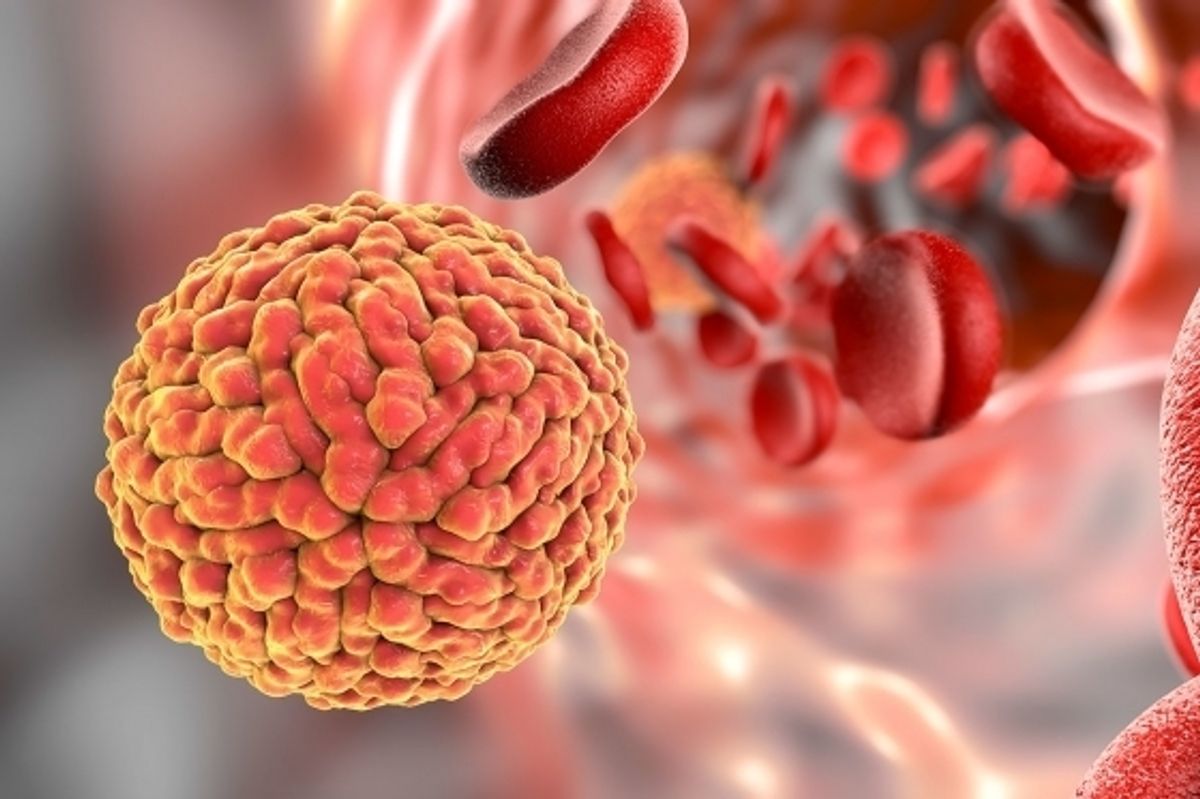(Above: Illustration of Zika virus in blood)
---
What if you could prevent Zika or Ebola just by washing your hands? On Wednesday, IBM and the Institute of Bioengineering and Nanotechnology (IBN) in Singapore announced a new chemical that can kill Ebola, Zika, dengue, AND herpes in one sanitary wipe.
While viruses are notoriously varied and hard to kill due to their fast rate of mutation, IBM and Singapore's IBN (working with other research institutions) invented a chemical that attacks something fundamental to all viruses that doesn't change in mutation.
'"Instead of going after its RNA or DNA, we looked at the glycoproteins that surround the virus," said James Hedrick, one of the lead researchers on the project at IBM's Almaden Research Center in San Jose. "No matter what the virus and how it mutates, it's going to have these substances on the surface; they have electric charges (some positive, some negative) that a chemical can stick onto."
Researchers developed a polymer that sticks to the virus, blocking it from hooking onto a victim cell in the body. If that doesn't work, the macromolecule can also stick to immune cells, blocking the spot where a virus would attach.
If a virus somehow gets past both of these barriers, the macromolecule has one more trick: It's basic (as in the opposite of acidic) and can neutralizes some of the acidity in the human cell, which prevents the virus's ability to replicate even if it does get in.
When taken orally as a medicine, the macromolecule can be used to treat people who are already sick and to prevent potential new cases from getting infected.
So just how soon will you see this incredible breakthrough implemented?
"My gut feeling is, something like a wipe, something like a hand cleaner is going to be relatively straightforward to move to market," said Hedrick. "It you market it as a true antiviral, I would imagine it would take 3, 4, 5 years maximum."
Getting the macromolecule into humans though, where it uses all three of its powers, would require clinical trials than could extend over several years. The company is currently seeking academic and industrial partners to deliver this technology to society.




















